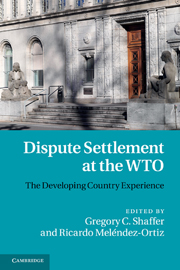The Chinese government issued its first White Paper on Foreign Trade Policy. There are some interesting paragraphs on China's trade balance and its partition in the WTO.
四、促进对外贸易基本平衡增长
一个国家对外贸易是顺差还是逆差,主要由其经济结构以及产品或服务的国际竞争力决定。中国并不刻意追求对外贸易的顺差。中国服务贸易长期以来一直存在一定逆差。中国货物贸易在1990年以前多数年份都是逆差。1990年以后,随着大规模承接国际产业转移,工业制成品竞争力增强,出口增长速度超过进口,中国的货物贸易由总体逆差转变为总体顺差。2005年中国货物贸易顺差首次突破1000亿美元,并持续4年大幅攀升。2008年中国货物贸易顺差达到2981亿美元历史高点,此后逐渐收窄。2009年和2010年,中国货物贸易顺差分别为1957亿美元和1816亿美元,比上年分别下降34.4%和7.2%。2010年,中国货物贸易顺差占进出口总额的6.1%,占国内生产总值的3.1%。在全球贸易差额(顺差或逆差)最大的9个国家中,中国的这两个比值并不处在偏高水平。
图表:表2.2010年货物贸易差额最大的9个国家比较新华社发
中国的货物贸易顺差反映了现阶段中国的国际分工地位。中国目前在工业制成品加工组装环节具有较大优势,是最大的工业品生产国和出口国。美国、欧盟等是最主要的终端消费市场。由于大量劳动密集型加工组装环节由日本、韩国、新加坡、中国台湾、中国香港等转移到中国,这些国家和地区原来对美、欧的顺差也转移到中国。其结果是,目前中国货物贸易顺差主要存在于中美贸易、中欧贸易之间,而中国与日本、韩国、东盟等工业中间品主要生产国则长期存在贸易逆差。2010年,中国对美国、欧盟的货物贸易顺差分别为1813亿美元和1428亿美元,对日本、韩国及东盟的货物贸易逆差共计1416亿美元;中国大陆对台湾地区货物贸易逆差860亿美元。中国生产和出口工业制成品需要大量进口初级产品,因此与一些初级产品出口国的货物贸易呈现逆差。正是现阶段中国制造业和服务业参与国际分工的水平和地位不同,所以中国货物贸易存在着大量顺差,而服务贸易则长期逆差。
图表:图5.2006-2010年中国对主要贸易伙伴顺差及逆差情况 新华社发
中国的货物贸易顺差主要来源于外商投资企业和加工贸易。在经济全球化不断深化过程中,由于分工的细化和规模经济的要求,越来越多的国际贸易由跨国公司主导,是基于价值链分工的产业内贸易或加工贸易。改革开放以来,中国吸收外商直接投资迅速增长。在相当长的时间里,外商投资企业进出口和主要由外商投资企业经营的加工贸易在中国货物贸易中的比重都保持在50%左右。外商投资企业进出口和加工贸易是中国货物贸易顺差的主要来源。2009年和2010年,外商投资企业货物贸易顺差分别为1270亿美元和1243亿美元,占同期中国货物贸易顺差总额的64.8%和68.4%,加工贸易顺差分别高达2646亿美元和3229亿美元,大大高于同期中国顺差总额。在外商投资企业进出口和加工贸易存在大量顺差的同时,国有企业进出口、一般贸易和其他贸易方式则存在逆差。
发达国家对部分高新技术贸易设限也影响中国与一些贸易伙伴的贸易平衡。中国正处在工业化加速发展时期,对发达国家的先进设备和高新技术有着较大的进口需求。但是一些发达国家却仍然坚持旧有思维,对向中国出口高端装备和高新技术产品设置了诸多限制,导致其相关产品对中国出口增长缓慢。这在一定程度上阻碍了中国自这些国家的进口,不利于双边贸易的平衡。
中国货物贸易由逆差转变为顺差改善了中国的国际收支状况,增强了中国抵御外部风险的能力。但是顺差急剧扩大也给中国经济带来困扰。出口结汇人民币大量投放增加了宏观经济调控的难度和复杂性。货物贸易顺差急剧扩大还使得中国与一些贸易伙伴摩擦增多,对人民币形成了持续和较大的升值压力。
中国政府高度重视对外贸易发展中的不平衡问题,采取了一系列政策措施抑制顺差过快增长。第一,积极调整经济结构,努力扩大内需,尤其是增加改善民生投资,刺激居民消费增长。第二,出台一系列扩大进口政策,简化进口管理和进口付汇手续,降低部分商品进口暂定税率,完善进口促进体系,提高进口便利化程度。第三,调整出口退税政策,先后降低或取消部分高耗能、高污染和资源性商品的出口退税。第四,修改加工贸易禁止类和限制类目录,扩大禁止类的范围,促进加工贸易转型升级。第五,改变自亚洲金融危机以后人民币兑美元变动区间收窄的状况,从2005年7月21日起实行以市场供求为基础、参考一篮子货币进行调节、有管理的浮动汇率制度。自2005年7月汇率机制改革至2011年8月末,人民币兑美元名义汇率升值了约30%。
中国促进对外贸易平衡增长的措施取得了明显成效。货物贸易顺差自2009年以来持续减少,顺差与进出口总值和国内生产总值之比自2008年起逐渐下降,对外贸易正在趋于平衡。中国的这些努力既是中国自身经济发展的需要,也是推动世界经济结构调整和再平衡的具体行动。
五、构建全方位互利合作经贸关系
中国的对外贸易是全方位发展的对外贸易。中国坚持不分大小、贫富,与所有贸易伙伴发展务实合作和互利共赢的经贸关系。
中国与发达国家贸易持续稳定增长,实现了优势互补和互惠互利。中国与欧盟贸易近年来稳步发展。欧盟对中国出口商品主要是工业制成品,其中技术领先的机械、电子产品、运输车辆、成套设备、核心零部件和精密元器件等在中国市场颇具竞争力。中国与美国贸易有着坚实的发展基础。中国出口丰富多样的消费品适应了美国消费者的需求,同时不断扩大自美国的电子、航空、生物、医药、农产品以及服务贸易进口,也满足了中国自身发展的需要。中国与日本贸易具有地缘相近的有利条件。中日贸易促进了两国产业的持续合作和进步,也带动了东亚区域经济分工与合作的深入发展。中国与加拿大、澳大利亚、瑞士、新西兰等发达国家的贸易及投资合作均保持良好发展势头。
中国与新兴市场和发展中国家贸易增长强劲,发展潜力巨大。2010年,中国与东盟自由贸易协定全面实施,90%的商品实现零关税,有力地推动了中国东盟双边贸易迅速增长。中国与东盟各自有特色和竞争力的商品自由进入对方市场,适应了双方多方面的需求。中国与韩国贸易保持持续稳定增长,两国相互投资和经济合作领域十分宽广。中国与其他金砖国家的贸易近年来快速增长,带动了各自优势产业的强劲发展,显示了新兴经济市场具有广阔的发展前景。近年来,中国与其他发展中国家贸易也以较快速度增长,与阿拉伯国家源远流长的贸易进一步发展,与拉美国家经济贸易合作领域不断拓宽,与非洲国家的贸易充分发挥双方资源条件和经济结构的互补性优势,促进了各自发展。
中国十分重视双边和区域经贸合作的机制化建设。目前与中国签订双边贸易协定或经济合作协定的国家和地区已超过150个。中国与美、欧、日、英、俄等主要经济体均建立和保持着经济高层对话机制。中国积极参与亚太经济合作组织、东盟与中日韩(10+3)领导人会议、东亚峰会、中非合作论坛、大湄公河次区域经济合作、中亚区域经济合作、“大图们倡议”等区域和次区域经济合作机制。中国坚持“与邻为善、以邻为伴”方针,与周边国家和地区建立和发展多种形式的边境经济贸易合作。
中国积极主动参与并推动区域经济一体化进程。截至2010年底,中国已经与五大洲28个国家和地区进行了15个自由贸易安排或紧密经贸关系安排谈判,签订和实施了10个自由贸易协定或紧密经贸关系安排。正在进行的自由贸易协定谈判5个。中国倡议建立东亚自由贸易区。2010年,中国与10个自由贸易协定或紧密经贸关系安排伙伴(东盟、巴基斯坦、智利、新加坡、新西兰、秘鲁、哥斯达黎加、中国香港、中国澳门、中国台湾)的双边货物贸易总额达到7826亿美元,超过了中国进出口总额的四分之一。
中国深入参与和推动世界贸易组织多哈回合谈判,努力维护多边贸易体制的权威性。中国强调谈判要有利于贯彻落实多边贸易体制的公平、公正原则,体现多哈回合作为发展回合的目标。中国全面参与了多哈回合的农业、非农产品、服务、规则等议题的谈判,独立提交谈判案文40多份,联合其他成员提交案文100多份。为推进多哈回合谈判,中国多次表示愿意为谈判作出建设性的、与自身发展水平相适应的贡献。
中国在解决与贸易伙伴的争议时兼顾各方利益,求同存异。加入世界贸易组织以来,随着进出口持续增长,中国与贸易伙伴的争端和摩擦有所增多。涉案产品主要集中在纺织品、鞋类、轮胎、汽车零部件、钢铁和化工产品,争议问题主要涉及知识产权、贸易平衡、公平贸易、食品安全、环境保护等领域。中国始终认为对话比对抗好,合作比施压好,应当努力通过协商谈判解决贸易伙伴之间的争议。中国坚持兼顾和平衡各方利益,在世界贸易组织规则和体制内,利用多双边渠道,通过对话、协商和谈判来解决争议。近年来,中国在扩大市场开放、保护知识产权、促进贸易平衡、改革人民币汇率形成机制、规范进出口经营秩序等方面采取了许多措施,充分照顾到贸易伙伴的关切。在协商不能解决争端的情况下,中国通过世界贸易组织争端解决机制,妥善处理与贸易伙伴的贸易争端,维护了多边贸易体制的稳定。






